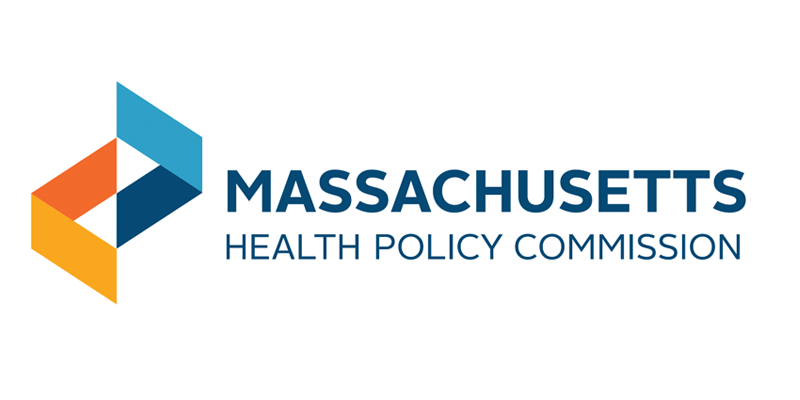Post Pandemic Costs Trend Upward
In mid-September, the Massachusetts Health Policy Commission (HPC) released its annual report on health care spending and cost trends. This much anticipated report raises the alarm regarding rising costs and other worrisome trends the Commission believes present within the Commonwealth’s health care market.
What is the HPC?
Formed in 2012 with the goal of containing the growth of health care costs, the HPC was the first of its kind public agency in the United States. HPC is led by David Seltz, a former State Senate staffer and highly respected healthcare policy expert. David played a key role in developing the Municipal Healthcare Reform law (Chapter 69, Acts of 2011) and worked closely with our Association to help protect the rights of retirees.
Over the past 11 years, HPC has worked to implement the state’s healthcare cost containment law that attempts to place controls on the annual rise of healthcare costs in Massachusetts. In addition, the agency researches cost trends and drivers. It also makes policy recommendations to both public and private sector healthcare entities.
Leading up to the GIC’s procurement process last year, the HPC publicly cautioned the 17-member commission to tread lightly in terms of increasing out-of-pocket costs (OPC)citing evidence that higher copayments and deductibles can lead to enrollees opting not to receive needed healthcare services or take medications due to affordability concerns. This then leads to greater levels of disease and overall healthcare problems, which in turn further increases costs.
Thankfully, the GIC heeded HPC’s warning and chose to largely maintain current OPC, which have now been in place for six years.
HPC ANNUAL REPORT: KEY FINDINGS
The September 2023 Report sounds the alarms that health care spending in Massachusetts is “moving in the wrong direction” in terms of an increase in the rate of annual growth. One measurement used by HPC is the average annual cost of a family insurance plan in 2012 compared to 2021. Back in 2012 the average family plan came in at $16,400. Just ten years later in 2021 the cost had risen to $23,100 – a 40.85% increase of $6,700.
Another point of focus in the report is the growing trend of high deductible plans. While the GIC has drawn the line at a $500 annual deductible for the non-Medicare plan, the average private sector deductible grew to $2,800 for families and $1,400 for individuals in 2021. Like insurance premiums, those costs have likely risen again over the past two years.
The report also indicates that in the wake of the pandemic the pace of health care spending in Massachusetts has grown faster than across the country. HPC sets an annual target of 3.1% a benchmark growth rate for per capita health care spending.
In a statement to the State House News Service, Seltz said, “Unfortunately, what we see from a lot of the data in our report is that this cycle is moving in the wrong direction. We see that prices continue to grow, and this is contributing to higher premiums and higher out-of-pocket costs both for employers and for consumers.”
COMMISSION RECOMMENDATIONS TO MITIGATE PRICE GROWTH
The HPC report also provides recommendations on areas of focus that can help contain the growth of costs, some of which would require legislative approval to implement. One such item is placing cost controls on the price of prescription drugs – something that the pharmaceutical industry adamantly opposes.
Another HPC recommendation is granting the commission increased authority to cap spending by hospitals and other providers. This proposal is another item that is highly controversial.
Association CEO Shawn Duhamel adds the following, “While HPC engages health care stakeholders and state government officials to address next steps, it is important for Mass Retirees to continue to engage new ideas aimed at helping to contain and even lower health costs over time. Innovative telehealth platforms such as Ibis Health (see page 12), wellness benefits offered by BCBS and UniCare, and other programs aimed at improving the overall health of retirees are relatively easy steps to take that can help lower costs. Even more important is the fact that many of these steps can also help retirees to lead healthier and better-quality lives.
“It is also important to recognize and do our part to help improve the deficiencies of our current system.” Employment challenges in filling open health care jobs only serve to further exacerbate rising costs. More health care workers are needed, while the state takes the needed steps to incentivize and stabilize community hospitals and providers.
Thankfully, Massachusetts took the important steps more than a decade ago to create HPC and lay the groundwork for health care cost containment – controls that do not involve reductions in health care quality or passing on costs to consumers.
“While these issues are highly complicated without easy solutions, government and private sector leaders continue to work together toward common goals,” continues Duhamel. “Look to future weekly updates, as well as our bimonthly newsletter for information on our ongoing collaborations and retiree- focused programs.”



